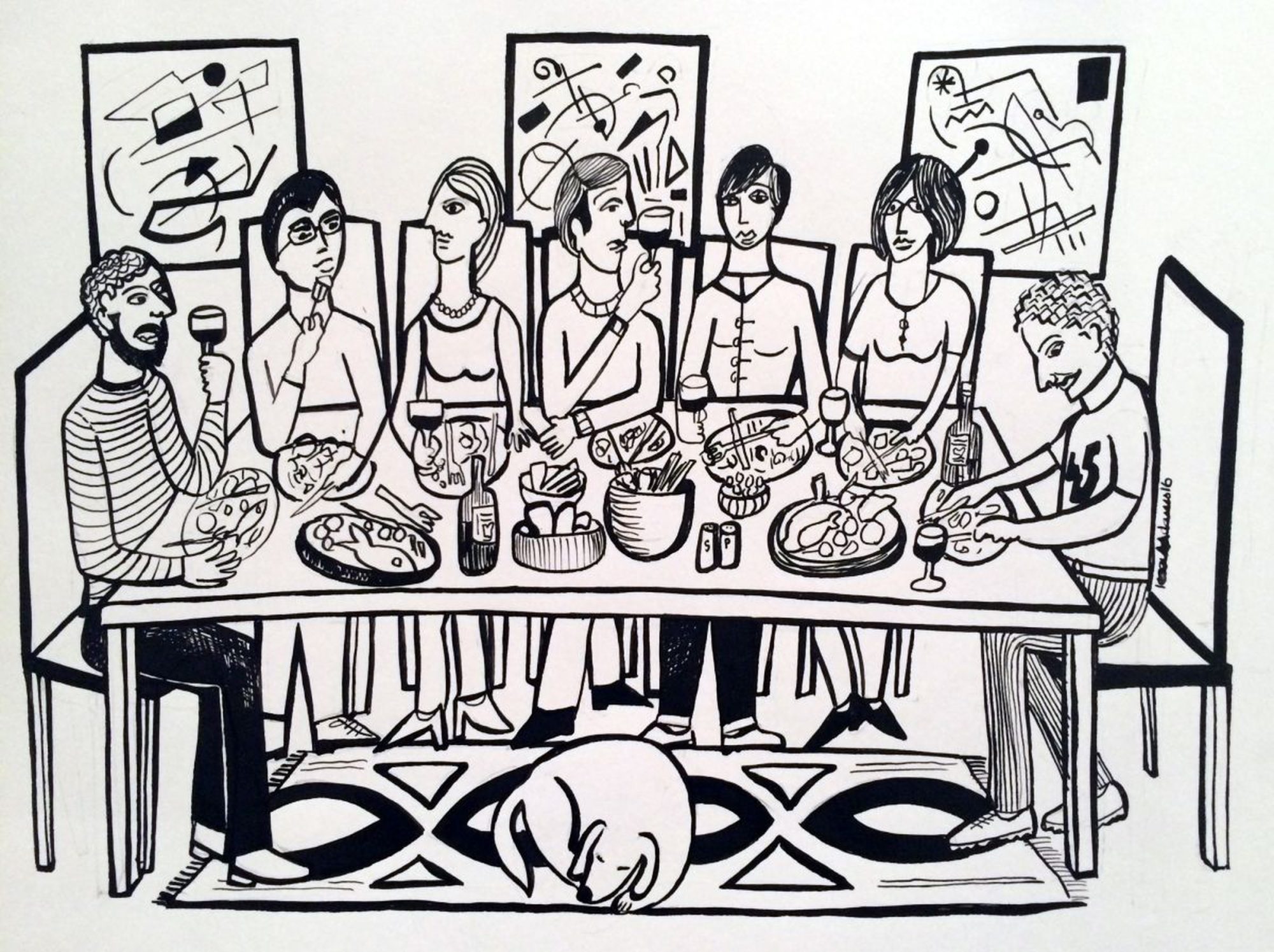This series of blog posts introduces some of the guiding principles that we use at the Ronin Institute to help the community be its best. Our last post was on Pay it Forward.
In our Code of Conduct, we emphasize an individual’s right to their “peaceful enjoyment” of participating in the Ronin Institute. Here’s one key thing that we all can do to enhance this for everyone: Practice the art of hosting.
In a world of getting things done, facilitation is emphasized as the best way to achieve successful and productive meetings. It’s where specific and skilled individuals are tasked with helping a group work through an agenda and toward specific goals. But is that the only way to get the most out of our meetings?
At the Ronin Institute, we consider the importance of hosting, which “draws less on technical proficiency and more on simple warmth and hospitality; less on lecturing and more on listening; less on facilitation and more on curiosity and open inquiry.” Importantly, it doesn’t depend on specific people to make an event a success.
For instance, when you (pre-2020) hosted a dinner party, what did you do to make your guests feel comfortable? Likewise, when you attended such a dinner party, what did you do to be a gracious attendee? I bet you practiced some of those “hosting” skills by listening openly and encouragingly to other guests, as well as helping them feel engaged and connected.
Being a great host doesn’t require many learned skills. It takes empathy and a willingness to make people feel welcome. It may not specifically keep us on the agenda, but it can deepen the quality of our interactions and experiences. Hosting is something that we can all embody and take charge of. When attending another event at the Ronin Institute, try asking yourself: What can I do to help others feel more comfortable, included, and valued?
[Artwork by: Koola Adams]
Arika is a Research Scholar and Community Director of the Ronin Institute. She is a social-ecologist who works with human-environmental issues including, community resilience, natural resource management, and the application of science. In addition, she is the Founder of Middle Path EcoSolutions, a consulting firm that helps organizations with community building.
This post is a perspective of the author, and does not necessarily reflect the views of the Ronin Institute.


